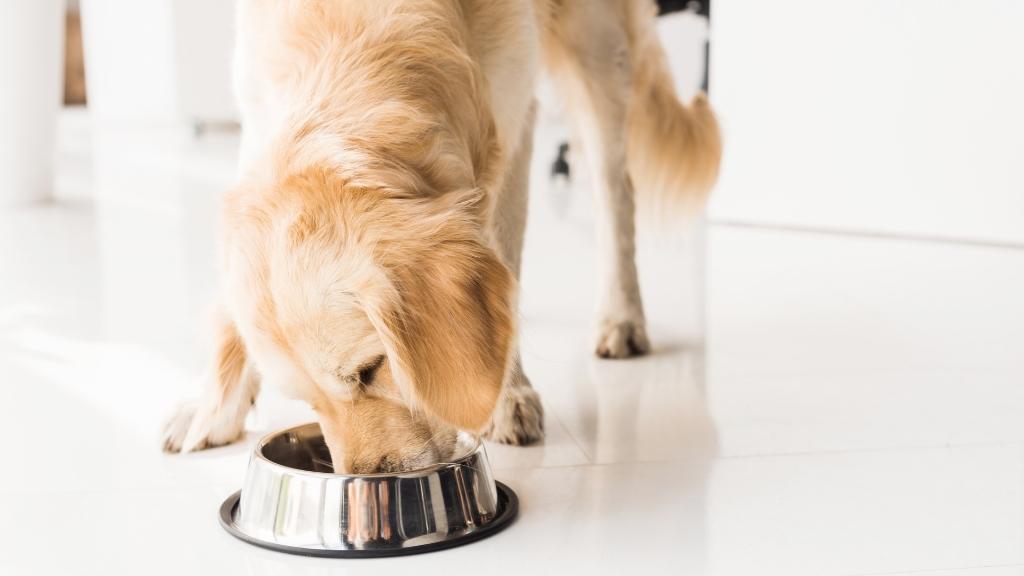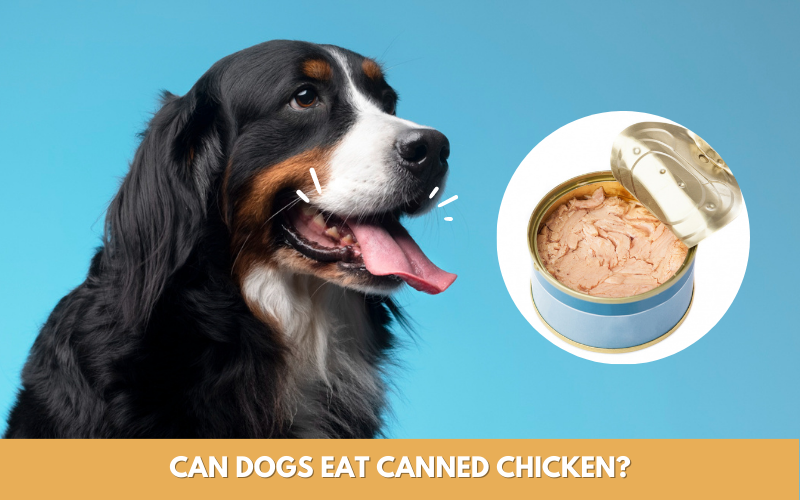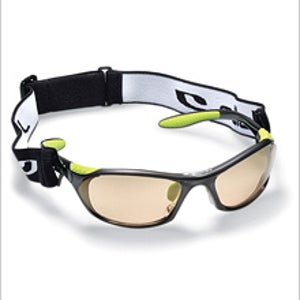Contents
- Can Dogs Eat Canned Chicken?
- Nutritional Value of Canned Chicken
- Benefits of Feeding Canned Chicken to Dogs
- Potential Risks of Feeding Canned Chicken to Dogs
- Feeding Canned Chicken as a Meal
- Feeding Canned Chicken as a Treat
- How to Prepare Canned Chicken for Dogs
- Recommended Portion Sizes
- Choosing the Right Type of Canned Chicken
- Other Options for Dog-Friendly Chicken
If you’ve ever wondered about whether it’s safe to feed your furry friend canned chicken, you’re not alone. Many pet owners have pondered this question and wanted to ensure the best nutrition for their dogs. In this article, we will explore the topic of feeding canned chicken to dogs. We’ll discuss the potential benefits and risks, guidelines for including it in their diet, and expert advice to help you make an informed decision about this popular canine food choice.
Can Dogs Eat Canned Chicken?
If you’re wondering whether it’s safe to feed your furry friend canned chicken, you’re in the right place! Many dog owners often find themselves wondering about the nutritional value, benefits, and potential risks of feeding canned chicken to their dogs. In this comprehensive article, we’ll explore all these aspects and provide you with valuable information to help you make an informed decision about integrating canned chicken into your dog’s diet.

Nutritional Value of Canned Chicken
Canned chicken can offer several essential nutrients for your dog. Let’s take a closer look at its nutritional content.
Protein Content
Protein is a crucial component of a dog’s diet as it provides the necessary building blocks for strong muscles and healthy tissues. Canned chicken typically contains a high protein content, making it an excellent source of this essential nutrient. Protein from chicken is also easily digestible for dogs, which is an added benefit.
Fat Content
Dogs need a certain amount of fat in their diet to support various bodily functions. Canned chicken may contain a moderate amount of fat, which can be beneficial for dogs requiring a higher calorie intake or those who partake in more intense physical activities.
Vitamin and Mineral Content
Canned chicken can also contribute to your dog’s vitamin and mineral intake. It generally contains essential vitamins like Vitamin B6, Vitamin B12, and Niacin. These vitamins play a vital role in supporting your dog’s overall health and well-being. Additionally, canned chicken might provide minerals such as zinc and iron, which are important for maintaining healthy blood cells and a strong immune system.
Sodium Content
While canned chicken can be a valuable source of nutrients, it’s crucial to be mindful of its sodium content. Some brands of canned chicken may contain added salt, which can be harmful to dogs if consumed in excess. We’ll discuss this potential risk and how to choose the right type of canned chicken later in the article.
Additives and Preservatives
When considering feeding your dog canned chicken, it’s important to read the labels carefully. Some brands may include additives or preservatives to enhance the flavor, texture, or shelf life of the product. While some additives may be harmless, others may pose health risks to your dog. It’s crucial to understand the ingredients and choose products that prioritize your dog’s well-being.
Benefits of Feeding Canned Chicken to Dogs
Feeding your dog canned chicken can offer several benefits that make it an enticing option for pet owners. Let’s explore these advantages in detail.
Source of High-Quality Protein
As mentioned earlier, canned chicken is an excellent source of high-quality protein that dogs require for optimal health. Protein plays a crucial role in supporting your dog’s growth, development, and overall muscle function. By incorporating canned chicken into their diet, you can ensure that your furry friend is getting the necessary protein they need to thrive.
Improved Digestibility
One of the key benefits of feeding canned chicken to dogs is its improved digestibility. The cooking and canning process of chicken breaks down the proteins, making them easier for dogs to digest and absorb the essential nutrients. This can be especially beneficial for dogs with sensitive stomachs or those prone to digestive issues.
Convenient and Easy to Use
Canned chicken offers convenience for dog owners, especially those with busy schedules. It’s a quick and easy option for providing a protein-rich meal or snack without the need for extensive preparation. Canned chicken can be easily stored, opened, and served, making it a hassle-free choice for dog owners on the go.
Variety in Diet
Incorporating canned chicken into your dog’s diet can help add variety to their meals. Dogs, like humans, may grow tired of eating the same food day after day. By introducing canned chicken as an occasional addition to their usual meals, you can enhance the variety and appeal of their diet, keeping them excited and interested in their food.
Suitable for Dogs with Dietary Restrictions
Some dogs may have specific dietary restrictions, such as allergies or sensitivities to certain ingredients. Canned chicken can be a suitable option for dogs with such dietary restrictions, as it typically contains minimal ingredients. However, it’s important to carefully read the labels to ensure that the canned chicken you choose doesn’t contain any allergens that could trigger adverse reactions in your dog.

Potential Risks of Feeding Canned Chicken to Dogs
While canned chicken offers many benefits, it’s essential to be aware of the potential risks associated with feeding it to dogs. Here, we’ll discuss some of the risks you should consider before introducing canned chicken into your dog’s diet.
Sodium and Salt Content
As mentioned earlier, some brands of canned chicken may contain added salt or sodium. While sodium is an essential nutrient for dogs, excessive consumption can lead to health problems such as dehydration, increased blood pressure, and kidney issues. It’s important to choose low-sodium or sodium-free options if you decide to feed your dog canned chicken and to monitor their overall sodium intake from all sources.
Xylitol in Some Canned Chicken Products
Xylitol is a sugar substitute that is toxic to dogs. While it is not commonly found in canned chicken, it is crucial to read the labels carefully to ensure the absence of this harmful ingredient. Xylitol consumption can lead to life-threatening conditions, such as hypoglycemia (low blood sugar) and liver failure, so it’s essential to avoid any canned chicken products containing this sweetener.
Additives and Preservatives
As mentioned earlier, some canned chicken products may contain additives and preservatives. While some of these additives are harmless, others may be detrimental to your dog’s health. It’s important to educate yourself on these ingredients and choose products that prioritize natural, safe, and wholesome ingredients for your furry friend.
Digestive Upset
Although canned chicken is generally easily digestible for dogs, some individuals may experience digestive upset when introduced to a new food. This can manifest as diarrhea, vomiting, or an upset stomach. To minimize the risk of digestive upset, it’s recommended to introduce canned chicken gradually into your dog’s diet and monitor their response closely.
Allergic Reactions
Like humans, dogs can be allergic to certain foods, including chicken. Before incorporating canned chicken into your dog’s diet, it’s essential to be aware of any potential allergies they may have and consult with your veterinarian if needed. If any signs of an allergic reaction, such as itching, skin irritations, or respiratory distress, occur after feeding canned chicken, discontinue use immediately and seek veterinary advice.
Feeding Canned Chicken as a Meal
Feeding your dog canned chicken as a meal can be a viable option, but it’s important to consider a few factors to ensure a balanced diet.
Balanced Diet Considerations
While canned chicken provides a good source of protein, it’s crucial to ensure that your dog’s overall diet is nutritionally balanced. Dogs require a variety of nutrients, including carbohydrates, fats, vitamins, and minerals, to maintain optimal health. To provide a balanced diet, you can consider supplementing the canned chicken with appropriate ingredients to meet your dog’s nutritional needs.
Supplemental Ingredients
To create a well-rounded meal using canned chicken, you can consider adding other dog-friendly ingredients. Some examples include cooked sweet potatoes, brown rice, green beans, or even a small amount of fruits like apples or bananas. These ingredients can provide additional nutrients, fiber, and variety to your dog’s meal.
Preparing a Balanced Meal with Canned Chicken
To prepare a balanced meal for your dog using canned chicken, consult with your veterinarian or a qualified canine nutritionist. They can help guide you in selecting the right ingredients, portion sizes, and dietary considerations based on your dog’s specific needs, such as age, weight, and activity level. Following their recommendations will ensure that your dog is receiving a nutritionally complete and balanced diet.

Feeding Canned Chicken as a Treat
In addition to serving canned chicken as a meal, it can also be used as a delicious and nutritious treat for your dog. Here are a few points to consider when feeding canned chicken as a treat.
Portion Control
Just like any treat, it’s important to practice portion control when feeding your dog canned chicken. While it may be tempting to give them a large amount due to its high palatability, excessive consumption can lead to weight gain and other health issues. Consider breaking the canned chicken into small pieces and only give your dog a limited amount, especially if they are prone to overeating.
Training and Reward Purposes
Canned chicken can be an excellent option for training or rewarding your dog. Its strong aroma and taste can capture their attention and motivate them to learn and perform desired behaviors. By using canned chicken as a training tool, you can enhance the bonding experience with your furry friend while providing them with a tasty and nutritious reward.
Avoiding Overfeeding
When using canned chicken as a treat, it’s important to ensure that it doesn’t contribute to excessive calorie intake. Remember to adjust your dog’s regular meals accordingly to account for any additional treats they receive throughout the day. This will help maintain their overall caloric balance and prevent weight gain.
How to Prepare Canned Chicken for Dogs
When preparing canned chicken for your dog, there are a few steps you can follow to ensure their safety and enjoyment.
Checking the Ingredients
Before purchasing canned chicken, carefully read the ingredient list to ensure there are no harmful additives or potential allergens for your dog. Choose products with minimal, recognizable ingredients and avoid any that contain harmful substances like xylitol.
Draining and Rinsing
Once you have selected the appropriate canned chicken, it’s recommended to drain and rinse the chicken before serving. This can help remove any excess sodium or unwanted liquid, improving the quality and safety of the canned chicken for your dog.
Cooking or Serving Raw
Canned chicken is typically already cooked, making it safe to serve as is. However, if you prefer to cook it further or your dog has specific dietary requirements, you can lightly cook the canned chicken or mix it with other cooked ingredients. Remember to avoid including any seasoning or spices that could be harmful to your dog.
Chopped or Shredded for Small Breeds
If you have a small breed dog, consider chopping or shredding the canned chicken into smaller pieces. This can make it easier for them to chew and digest, reducing the risk of choking or discomfort.
Mashed or Pureed for Seniors or Dental Issues
For senior dogs or those with dental issues, consider mashing or pureeing the canned chicken to create a softer texture. This can make it more comfortable for them to eat and ensure they can still enjoy the nutritional benefits of the canned chicken.

Recommended Portion Sizes
When determining the appropriate portion sizes of canned chicken for your dog, there are several factors to consider.
Factors to Consider
Portion sizes will vary depending on your dog’s size, weight, age, and activity level. Smaller dogs will generally require smaller portions, while larger or more active dogs may need larger servings. Additionally, if you are using canned chicken as a treat, it’s important to consider the overall calorie intake from all sources to prevent overfeeding and maintain a healthy weight.
Consulting with a Veterinarian
To ensure that you are providing the right amount of canned chicken to your dog, it’s always best to consult with your veterinarian. They can provide personalized recommendations based on your dog’s specific needs and help you establish appropriate portion sizes that align with their overall dietary requirements.
General Guidelines for Portion Control
As a general guideline, canned chicken can be served in moderation, especially if used as a treat. For a meal, it’s recommended to follow the veterinarian or nutritionist’s guidance on the portion sizes, taking into consideration the nutritional balance of the meal and your dog’s individual needs.
Choosing the Right Type of Canned Chicken
When selecting a canned chicken product for your dog, it’s important to make an informed choice. Here are some considerations to keep in mind.
Read the Labels
Carefully read the labels to understand the ingredients and any potential allergens or harmful additives. Look for products with limited and recognizable ingredients that prioritize your dog’s well-being. Avoid any canned chicken products that contain harmful ingredients like xylitol or high amounts of added sodium.
Avoid Harmful Ingredients
As mentioned previously, some canned chicken products may contain harmful ingredients like xylitol. It’s crucial to double-check the ingredient list and avoid any products that include these harmful substances. By doing so, you can ensure your dog’s safety and protect them from potential health risks.
Consider Organic or Grain-Free Options
If you prefer to provide your dog with the highest quality ingredients, you may consider organic or grain-free options. Organic canned chicken is produced without the use of pesticides, hormones, or antibiotics, offering a more natural and wholesome choice. Grain-free options are suitable for dogs with grain sensitivities or those on specific dietary plans.
Choosing the Right Texture
Canned chicken products come in various textures, such as chunks, shreds, or paté. Consider your dog’s preferences and any dental or chewing issues they may have when selecting the right texture. Smaller dogs or those with dental problems may benefit from softer textures, while larger dogs may enjoy the added texture of chunks or shreds.

Other Options for Dog-Friendly Chicken
While canned chicken can be a convenient and nutritious option for your dog, it’s not the only choice available. Here are some alternative options to consider.
Fresh Cooked Chicken
Cooking fresh chicken at home allows you to have more control over the ingredients and cooking process. By preparing it yourself, you can avoid additives and preservatives often found in canned chicken. Ensure that you cook it thoroughly and without any seasoning or harmful ingredients for your dog.
Raw Chicken
Raw feeding, also known as a raw diet or BARF (Biologically Appropriate Raw Food), has gained popularity among some dog owners. However, feeding raw chicken comes with its own set of risks and considerations. It’s important to research and consult with a veterinarian or canine nutritionist before introducing raw chicken into your dog’s diet to ensure their safety and nutritional needs are met.
Commercially Prepared Dog Food
Commercially prepared dog foods offer complete and balanced nutrition for dogs, including chicken as a protein source. These dog foods go through rigorous testing and can provide all the necessary nutrients your dog needs to thrive. When choosing a commercially prepared dog food, look for reputable brands that prioritize high-quality ingredients and meet the appropriate nutritional guidelines for your dog’s life stage.
Other Protein Sources
While chicken is a popular protein source, there are other options available if you prefer to diversify your dog’s diet. Some alternative protein sources include turkey, beef, fish, and lamb. Remember to choose lean cuts of meat and ensure they are properly cooked to benefit your dog’s health.
In conclusion, canned chicken can be a safe and nutritious addition to your dog’s diet if chosen and prepared appropriately. It can provide high-quality protein, improved digestibility, and variety in their meals. However, it’s crucial to be aware of potential risks such as sodium content, harmful additives, and digestive upset. By following the guidelines outlined in this article, consulting with your veterinarian, and prioritizing your dog’s individual needs, you can confidently decide whether or not canned chicken is suitable for your furry friend.










